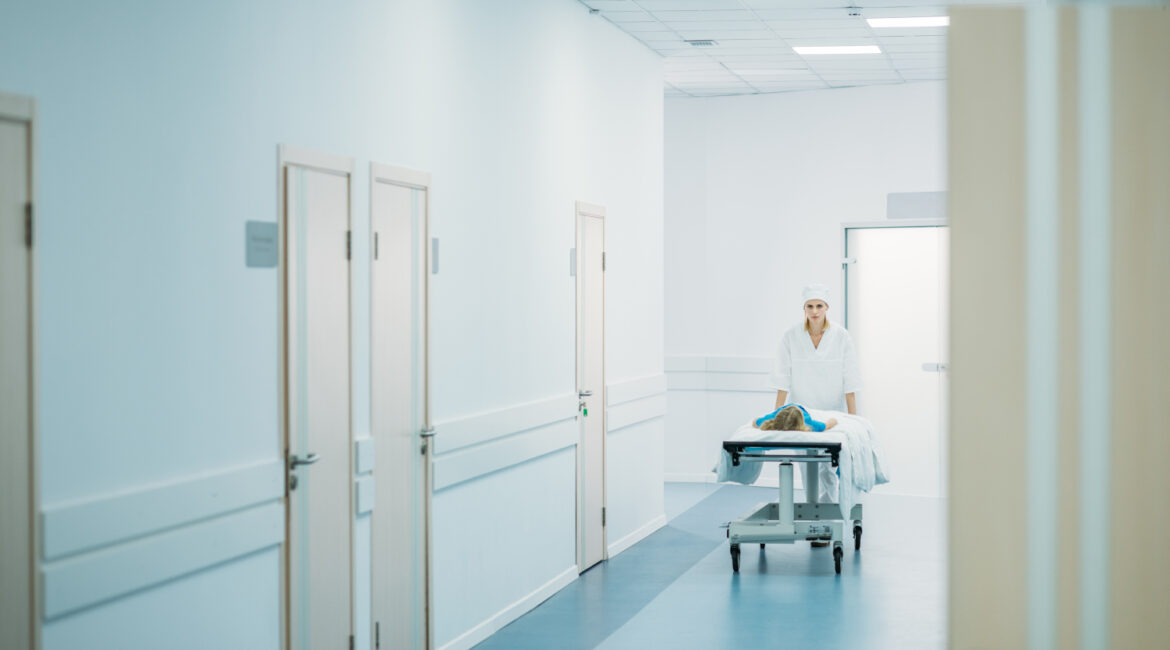Our views of inpatient mental health care are often shaped by disturbing portrayals in movies and TV shows. But here’s what you can really expect from a psychiatric ward or “mental hospital.”
What is a Psych Ward?
In the United States, a psychiatric ward, psychiatric unit, or behavioral health unit is a place where people receive help for severe mental health issues. It is located in a hospital setting and provides a safe environment with 24-hour monitoring by trained staff.
Having a serious mental health issue does not automatically mean you need to be in a psychiatric facility. However, admission might be necessary if there is a risk of self-harm or if mental health issues impair judgment to the extent that they pose a risk to others. Severe conditions that may warrant inpatient psychiatric treatment include:
- Depression
- Anxiety
- Bipolar disorder
- Schizophrenia
- Eating disorders
The prospect of being admitted to a psychiatric unit can be frightening due to negative portrayals and stigma. However, understanding what inpatient psychiatric care is really like can help you decide if it’s the right option for you or a loved one.
Psych Ward vs. Psychiatric Hospital
A psychiatric ward or unit is typically located within a general hospital and caters specifically to patients with psychiatric problems. In contrast, a psychiatric hospital is a facility entirely dedicated to mental health care and is usually divided into units serving different populations, such as children, adolescents, men, women, and LGBTQIA+ individuals.
How Long is a Stay in a Psychiatric Hospital?
The average length of stay for inpatient mental health care has been getting shorter. In 2018, the average stay for adults in the U.S. was between five and seven days. Long-term hospital admissions lasting weeks, once common, are now rare.
Obtaining Inpatient Psychiatric Treatment
Most people in need of inpatient psychiatric care go to a hospital emergency room first. There, they undergo a comprehensive evaluation that includes an interview, lab work, and a physical exam. Based on this information, a team of mental health providers determines the best level of care.
Involuntary Psychiatric Care
If someone is at significant risk of harming themselves or others, involuntary admission may be necessary. State laws differ, but qualified professionals usually make this determination, with family members often providing important information.
Voluntary Inpatient Psychiatric Admission
If you are at risk but willing to get help, the emergency medical team may refer you for voluntary inpatient care. During voluntary admission, you generally retain the right to leave, though this depends on the state or country.
Other Levels of Care
If inpatient care is not deemed necessary, the mental health team may recommend outpatient care options.
Preparing for Admission to a Psychiatric Ward
If referred to inpatient psychiatric treatment, arrangements will be made to transport you to the unit. It’s best to arrive prepared. Consider bringing the following:
- Clothes: Most units allow personal clothing, but avoid items with drawstrings, belts, shoelaces, or scarves.
- Medication: Bring a current list of your medications, including names and dosages.
- Personal Items: Check ahead about what items are allowed, such as electronics, personal grooming supplies, and medical equipment.
What Not to Bring
Prohibited items usually include razors, knives, glass bottles, metal objects, drugs or paraphernalia, and plastic bags.
The Admission Procedure
Upon arrival, you will go through an admission process that includes paperwork, a safety search, and an admission interview.
Daily Life in a Psychiatric Hospital
Contrary to movie portrayals, the inside of a psychiatric ward is typically structured and supportive, resembling a combination of a conference and a medical treatment environment.
- Medication Administration: Medications are usually administered in a designated area.
- Meeting with Your Treatment Team: Daily meetings with your psychiatric team leader to discuss progress and adjust treatment.
- Skills and Education Groups: Therapy groups that teach practical skills.
- Free Time and Recreational Therapy: Units offer recreational activities and structured free time.
- Meals: Meals are individually served with options for special diets.
- Visitors: Visiting hours and the number of visitors may be restricted for security reasons.
- Laundry and Showers: Access to laundry facilities and private showers, with staff checks to maintain safety.
- Seclusion and Restraint: Used only as a last resort for maintaining safety.
Advantages of Inpatient Treatment
- Safe Environment: Difficult to harm yourself in an inpatient unit.
- Social Support: Being around others with similar challenges can provide a sense of community and hope.
- Stability and Routine: Consistent daily routines aid recovery.
- In-the-Moment Coaching: Staff are available around the clock to provide support.
Disadvantages of Inpatient Treatment
- Limited Access to Family and Friends: Restrictions on visits can be challenging.
- Limited Coping Skills: Access to usual coping mechanisms may be restricted.
- Potential for Negative Experiences: Measures for safety can sometimes be distressing.
Leaving the Hospital
The goal is to reach a point where 24-hour supervision is no longer necessary. Discharge planning includes continuing treatment through outpatient programs or other resources.
Deciding When to Leave
The treatment team, including a psychiatrist or nurse practitioner, will decide on discharge. Your input is important in determining the right time to leave.
If You Want to Leave Early
Voluntary patients may face different procedures depending on the state. Some states require a written request, while others allow immediate discharge unless there’s a risk of harm.
Finding the Right Inpatient Care
Researching ahead of time can help you choose the right facility. Consider staffing levels, rates of seclusion and restraint, and how staff treat you when you call for information.
By understanding the reality of inpatient psychiatric care, you can make informed decisions and support your loved ones through their mental health challenges.

